The journey of Umrah is a special pilgrimage to the holiest city of Makkah where Muslims come to worship the Almighty Allah (SWT) and to seek blessings from the Creator. This journey is not so big as Hajj but has great importance in the faith as it also brings great rewards. As pilgrims come to perform the journey in Saudi Arabia, they dream of cleaning their hearts, coming closer to Allah (SWT), and asking for His forgiveness which brings them blessings from the Divine.
In this blog, we will discuss why Muslims prefer the journey, what the journey is, and what the rewards it brings. We will also explain why people call it the “lesser pilgrimage” with big rewards. Whether you are going to the Umrah tour for the first time or just want to learn more about the holy journey, we hope this blog will help you prepare.
Table of Contents
Umrah: A Lesser Pilgrimage in Islam
Hajj is considered the biggest pilgrimage in the Islamic faith which is mentioned in the holy book of the Quran as a journey of a lifetime. In comparison with this main pilgrimage of Hajj, the journey of Umrah is called the lesser pilgrimage.
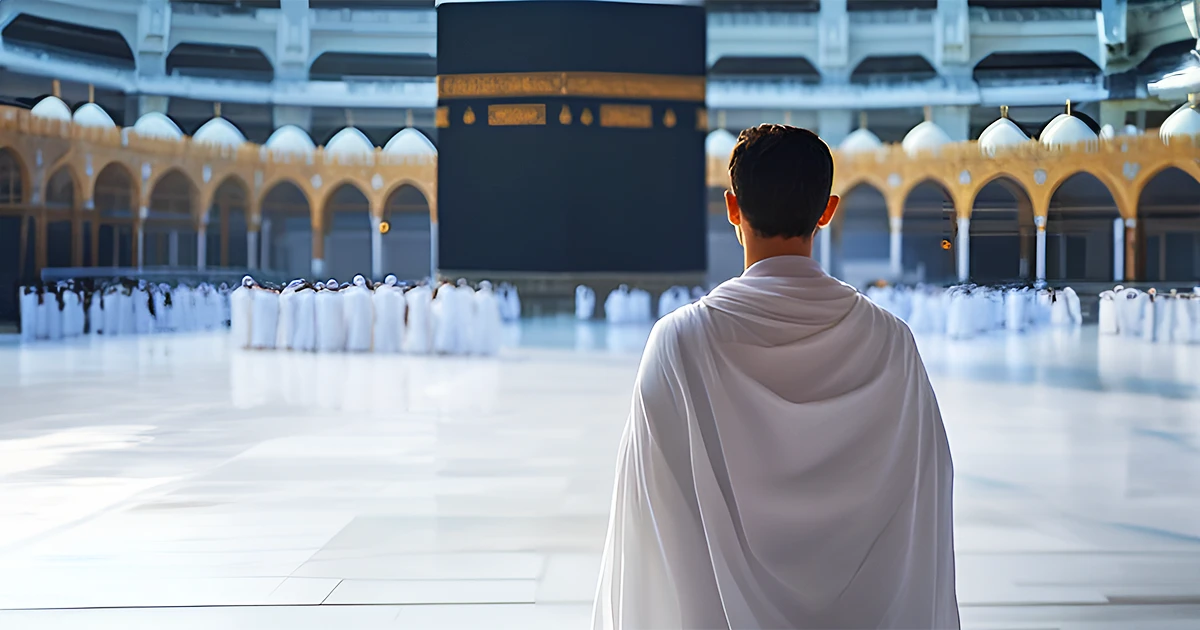
Umrah has the flexibility to perform in any of the months of a year without the month of Hajj. Every year, countless pilgrims visit Makkah and Madinah to fulfill their dream of performing it. Generally, it is said that when a Muslim performs the journey in Ramadan, its rewards get multiplied. So, many pilgrims try to perform this in the holy month.
Generally, the journey is a visit to the House of Allah (SWT) – the Holy Kaaba, a structure that is situated in the center of the Masjid Al-Haram in Makkah.
There are several reasons why the holy journey is considered as the lesser pilgrimage, like –
- Obligation: Hajj is a compulsory pilgrimage in the faith while the Umrah is not mandatory. It is a highly recommended Sunnah, but not an obligation like Hajj.
- Time of Performance: While the big journey is performed only in Dhul-Hijjah, the lesser one can be performed at any time of the year.
- Rituals: Compared with Hajj, Umrah has fewer rituals and can be completed in a few hours. In Umrah, there are rituals like – Tawaf, Sa’i, and Halq/Taqsir.
Both pilgrimages are acts of submission to the Almighty Allah (SWT) and carries great rewards for the pilgrims who perform them.
Historical Background of Umrah
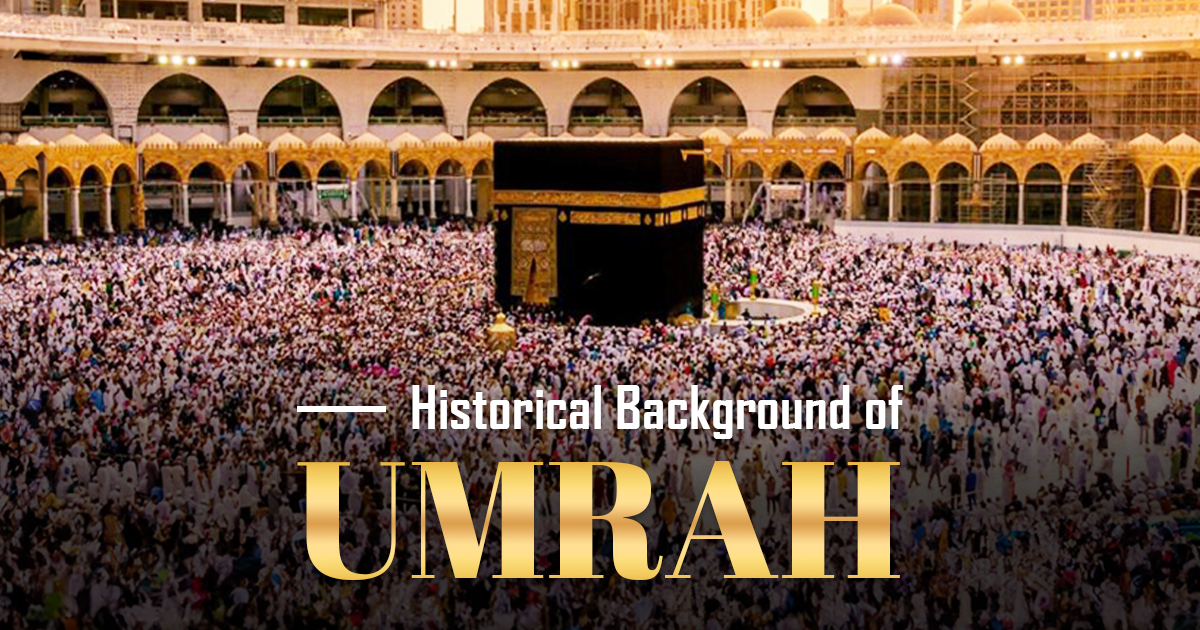
The history of Umrah begins in 622 CE when Prophet Muhammad (PBUH) and the Muslims left Makkah for Madinah to escape torture from the Quraysh tribe. Even though they found peace in Madinah, they longed to return to Makkah to perform Umrah.
In 628 CE (6 AH), Prophet Muhammad (PBUH) had a dream in which he was performing Umrah. Taking a sign from Allah (SWT), he set off towards Makkah with 1,400 companions to fulfill the dream. Here, the Quraysh feared an attack and refused to let the Muslims enter Makkah. Instead, the Muslims camped at a place called Hudaibiyyah. Prophet Muhammad (PBUH) chose peaceful negotiations which led to the Treaty of Hudaibiyyah. This allowed the Muslims to perform Umrah the following year.
In 629 CE (7 AH), Prophet Muhammad (PBUH) returned to Makkah with 2,000 Muslims, including women and children, to perform the first official Umrah in Islamic history. This was a significant event, as it marked the first time the Muslims performed Umrah peacefully after many years of struggle.
Prophet (PBUH) and Umrah
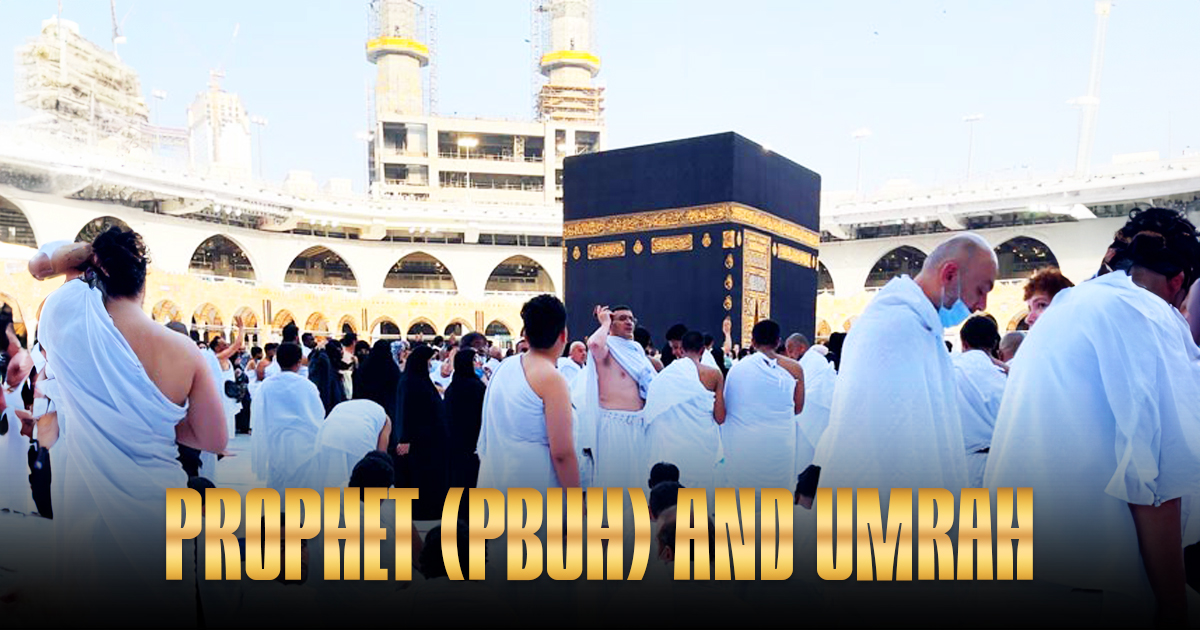
Prophet Muhammad (PBUH) performed Umrah four times after moving to the city of Madinah and all of these pilgrimages took place during the month of Dhu’l-Qi’dah. Here’s a simple timeline of his Umrah journeys –
The First Umrah (Umrah of al-Hudaybiyah)
The Prophet (PBUH) and his companions set out to perform the journey, but the Quraysh tribe prevented them from entering Makkah. They camped at Hudaibiyyah, where they agreed to a peace treaty. Although they couldn’t complete Umrah, they sacrificed animals and shaved their heads, exiting the state of Ihram.
The Second Umrah (The Fulfilled Umrah)
The following year, Prophet Muhammad (PBUH) returned to Makkah with his companions. This time, they were allowed to enter the city and perform Umrah peacefully. The Prophet (PBUH) stayed in Makkah for three days before returning to Madinah.
The Third Umrah (Umrah with Hajj)
This Umrah was performed as part of the Prophet’s (PBUH) only Hajj, known as the Farewell Hajj, where he completed both rituals together.
The Fourth Umrah (Umrah from al-Ja’rranah)
After the Battle of Hunayn, the Prophet (PBUH) returned to Makkah and performed Umrah from a place called al-Ja’rranah.
Rewards that Umrah Brings to Life
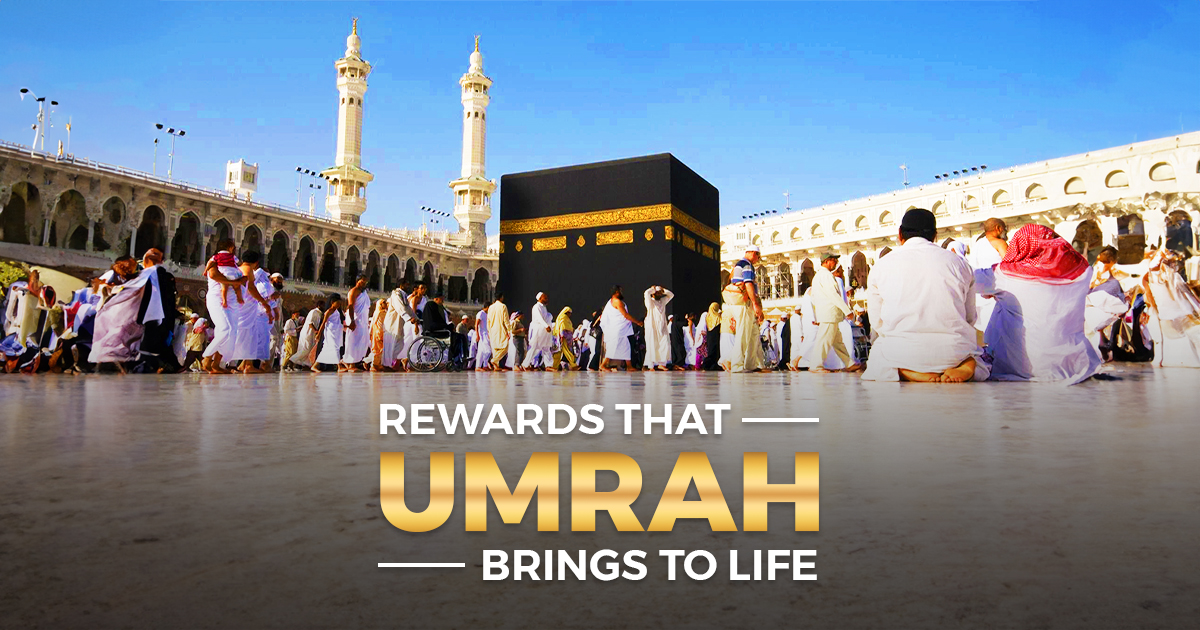
When a pilgrim performs the journey of Umrah they receive several rewards from the Almighty which is the reason it is called ‘The Journey of Rewards’. There are other rewards like –
Guest of Allah (SWT)
It is said when you perform Umrah, you become a guest of Allah (SWT). This means you are honored by Him, and He welcomes you to His holy house in Makkah.
Eradicates Poverty
Performing Umrah can help remove financial hardships. Many believe that this blessed journey brings barakah (blessings) to their wealth and helps them find new opportunities.
Wipe Out Previous Sins
One of the most significant rewards of Umrah is the chance to wipe away all past sins. When you sincerely perform Umrah, asking for forgiveness, Allah (SWT) forgives your mistakes and grants you a fresh start.
Strengthens Imaan (Faith)
The journey of Umrah helps strengthen your faith in Allah (SWT). Being in the holy places, performing rituals, and reflecting on your relationship with Allah can deepen your spirituality and devotion.
Reward Same as Jihad
The reward for performing Umrah is considered equal to that of jihad, which is one of the highest acts of worship in Islam. This shows how much value Allah (SWT) places on this beautiful pilgrimage.
Umrah: A Journey of Sabr and Shukr
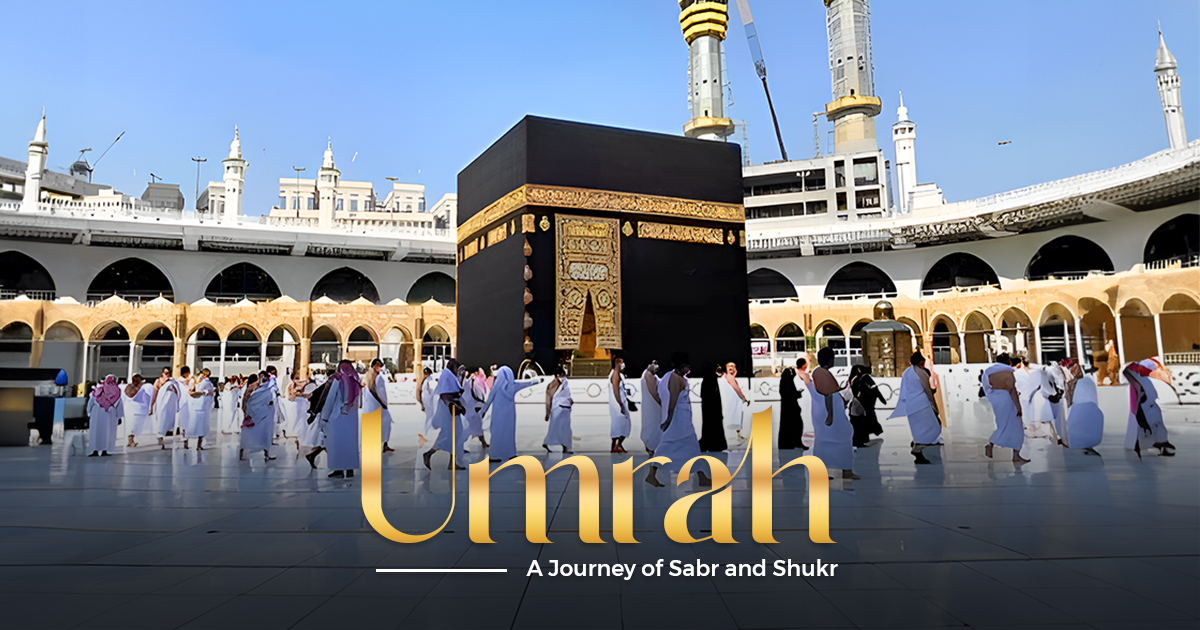
As we have come this far in this blog now you know Umrah is more than just a pilgrimage rather it is a beautiful opportunity for spiritual growth and renewal. As you walk around the Holy Kaaba, perform sa’i, and seek forgiveness, you experience the true essence of worship. This pilgrimage teaches us patience (sabr) and gratitude (shukr) for all that Allah (SWT) provides. Whether it’s your first Umrah or you are revisiting this sacred experience, remember that every step you take brings you closer to the Divine and opens the door to His blessings.
May this journey inspire you to strengthen your faith and carry the spirit of Umrah into your daily life. We hope this blog has helped you understand and prepare for your blessed journey.
Safe Umrah and may Allah (SWT) accept your prayers!
FAQ
What is the purpose of performing Umrah?
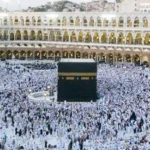
The purpose of the Umrah journey is to seek closer to the Almighty Allah (SWT) through specific acts of worship. In the Sharia, Umrah involves visiting the holy Kaaba, where pilgrims perform three acts – Tawaf, and Sa’i after entering the state of Ihram. Finally, they complete the pilgrimage by shaving and cutting their hair. Overall, the goal of Umrah is to enhance piety, strengthen spiritual values, and fulfill their desire to worship Allah (SWT) in His sacred place.
What are the spiritual benefits of Umrah?
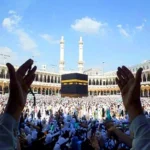
Umrah provides many spiritual benefits for pilgrims. It allows you to renew your faith and commitment to Allah (SWT). The pilgrimage is a powerful opportunity to seek forgiveness for past sins and to cleanse your heart. Also, being in the holy cities of Makkah and Madinah helps deepen your connection with the divine, encouraging reflection and prayer. Overall, Umrah is a chance to grow spiritually and strengthen your relationship with the Creator.
What does the Prophet say about Umrah?
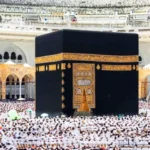
The Prophet Muhammad (PBUH) emphasized the importance of Umrah, saying, “Performing Umrah expiates the sins committed between it and the previous Umrah.” This means that every time you perform Umrah, Allah (SWT) forgives your past mistakes. The Prophet (PBUH) also mentioned that the reward of a Hajj Mabrur (accepted Hajj) is nothing except Paradise. This shows the great value and spiritual significance of both Umrah and Hajj in Islam, highlighting their role in seeking forgiveness and earning Allah’s (SWT) blessings.
 Kolkata: Umrah Departures Every Month:
Kolkata: Umrah Departures Every Month: 

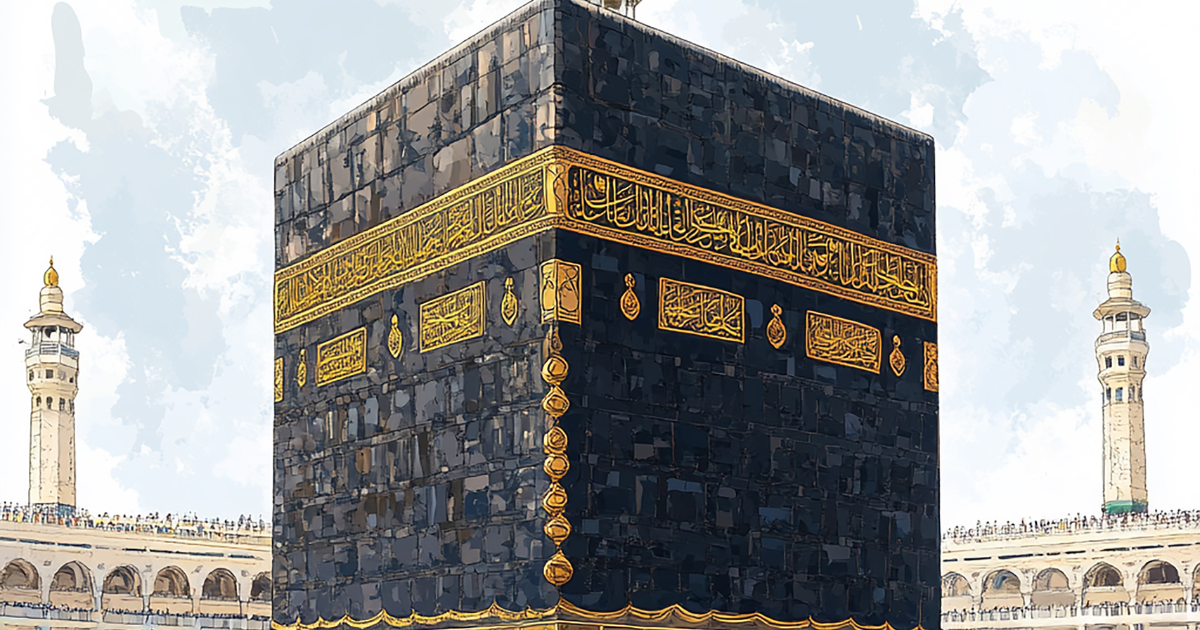
Leave a Reply